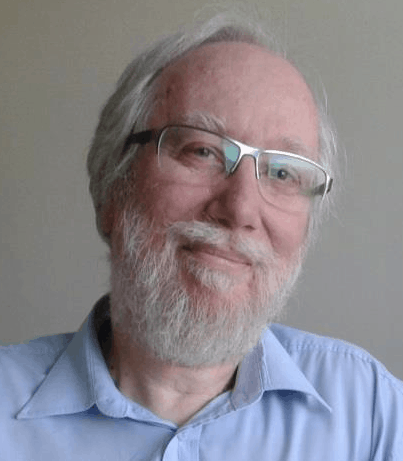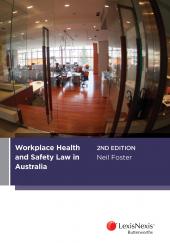
Neil Foster is a professor at the University of Newcastle in New South Wales with an Arts/Law degree, a degree in Theology and a research Master of Laws degree. He teaches Torts, Workplace Health and Safety Law, and an elective in “Law and Religion”, has published a book on Work Health and Safety Law in Australia and writes an intriguing blog about law and religion. He has accepted the offer of humanising OHS and provided the answers below:
How did you get into Health & Safety?
I was teaching law on a casual basis to “non-law” students in a number of different areas, and my supervisor at the time was asked by the Health Faculty at our University if she could find someone to teach “OHS Law” as part of a degree in OHS they were offering. Keen for more paid work, I agreed! Once I got into this, I saw what an important and interesting area it was, and stuck with it! Some years later the opportunity arose to convert my online teaching notes into a textbook, and I wrote these up just about the time the new WHS Acts were starting into my book “Workplace Health and Safety Law in Australia”.
What drives you?
As well as enjoying the challenge of writing about and teaching an inherently interesting area of law, as a committed Christian I see this as part of “love for my neighbour”- helping professionals to be equipped to put in place processes to stop people being injured at work, and holding those who injure others through carelessness at work accountable.
What helps you slow down?
I don’t have any interesting hobbies! But I enjoy reading (theology and fantasy/science fiction and thrillers), when I get a chance. I also love hanging out with people from my church and my growing family (four children, 10 grandchildren)- but sadly COVID-19 is making that hard to do in person at the moment!
Any OHS Regrets?

It is always hard to find time when teaching and researching across a number of areas (I also teach Torts and “Law and Religion” courses) to keep up as well as I would like to with recent cases, and I am finding it hard to carve out time for the next edition of my book (the 2nd ed came out in 2016).
Favourite fiction writer?
In science fiction/fantasy I love the books of Orson Scott Card (with Brandon Sanderson not far behind)- but of course I have to include C S Lewis and J R R Tolkein. For thrillers I like the usual ones: John Le Carre, Tom Clancy (and even his “posthumous” books are not bad!), Lee Child, and have recently been enjoying re-reading Frederick Forsyth.
What is one OHS trend you are watching keenly?
I am particularly interested in how company officers are held personally to account, and was very encouraged to see the recent Commonwealth Parliamentary Committee report which recommended making it unlawful to offer D&O insurance for WHS criminal penalties. Also excited to see that the NSW Parliament is considering a Bill to implement this change. I will be watching this very keenly.
Person/s who you watch and take inspiration from in OHS that you think will have an increasing impact in the sector.
The person who I have taken most inspiration from in the OHS area is Emeritus Professor Ron McCallum AO, an amazing man who has overcome incredible challenges to rise to the most senior academic positions in Australia, but still has a passion for improving safety in the workplace. Academic lawyers who are writing and researching about WHS Law are still not very common, so I hope we see the next generation start to emerge soon!
What are you most excited about in our sector?
It is good to see that company officers are much more aware these days about their responsibility to provide leadership on safety issues. I hope that trend continues!
What’s your favourite quote?
I could give you some from the Bible, which are really important to me. But for this occasion let me give you one from one of my other sources of favourite reading, Marvel Comics! “With great power, comes great responsibility” (Stan Lee, Amazing Fantasy #15). An apt saying for company officers.
Biggest issue facing the OHS profession?
In any profession where there is a possible clash between the interests of your employer, and the interests of those whose safety you are responsible for, there will be an issue of integrity and courage. Do you make sure that all the risks are properly brought to the attention of those in power, even though this may see you face their displeasure or even a loss of your job? In these days when OHS is a big topic, and with “whistleblower” laws, it may be a bit easier. But the job still calls for people to do the right thing even at a personal cost. That is part of what it means to be a “profession”!
What would you like to see to improve collaboration in OHS?
In the past there were a number of regular meetings between academics in this area, and representatives of the various regulators, organised by colleagues at the ANU’s National Research Centre for OHS Regulation. This has not been possible recently. I think it would be good for the government to fund an initiative of this sort to make sure that academics are aware of what the regulators are working on, and regulators can have some idea of the results of research.
What should you have been doing whilst you answered this?
Taking some time off during the mid-semester break from teaching!
